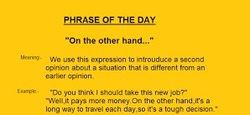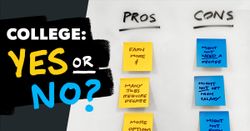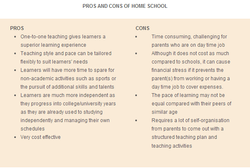May 1, 2022
Pros and Cons: EARNING COLLEGE & HOMESCHOOLING



Earning a college degree
Pros: Earning a college degree means you are trained for a specific career and will likely be able to land a higher-paying job. If you live on campus, you’ll also get to have “the college experience,” enjoy the social aspects of college, and meet people from all walks of life.
Pros:
Gain a better education:
College is a tool for you to use to further your education. You’re able to learn more about the things you love, and about the things you don’t. College means more classes, which means more information for your brain to soak up.
More job opportunities
Many jobs require at minimum a college education. And with a diploma behind your belt, that means that more high-paying and interesting jobs are going to be available to you. Employers usually don’t bother with your resume unless you have a college education.
New experiences
Outside of your hometown, there are countless people for you to meet, and new places to go, and college is a way to do that. As an adult on campus, you will have so much more freedom. Freedom to check out that new coffee shop down the street, or wander around campus at your leisure. It’ll all be new to you, a breath of fresh air in your life. Try new things and see new people.
Get outside of your comfort zone/boundaries
When you go to college, you’re expected to be independent. You won’t have anyone holding your hand the entire time, instead you will have to do things by yourself. This will test your limits, and while it can be stressful at times, you’ll find that you’re capable of so much more than you expected.
Cons: Earning a college degree can be expensive and time-consuming. Worse yet, earning a degree doesn’t even guarantee a job. Many also argue college isn’t necessary as you can gain experience on the job or go to trade school, graduate within a year, and start earning money. Cha-ching!
Debt/Student loans
It’s common knowledge: college costs money. It’s expensive, and while scholarships help, they only help to ease the future debt. Student loans are an option too, but once you graduate they’ll come knocking on your door. This lack of money that is common among college students leave them turning out their pockets and turning towards their family, friends, and the bank for a way out.
Stress
School is stressful, and college is going to be even more stressful. You’re more or less on your own. It’s up to you to email professors, to get yourself to class, to figure out how to graduate. Even though you’ll have counselors as resources, having to be independent is still going to stress you out.
Jobs don’t require college education
There are successful careers that doesn’t require their employees to have a college education, like veterinary technicians, opticians, and dental hygienists. These jobs pay well, and offer you a steady income and way to have a comfortable life.
Famous/rich people without college education
Think of Bill Gates, Steve Jobs, and Ellen DeGeneres. All three have something in common: lack of a college degree. Many celebrities and entrepreneurs started a semester or two of college, but eventually dropped out without graduating.

Home-schooling
Pros: Parents who home-school their children feel they are providing a better education for their kids. Home-schooling kids also means students can avoid the violence and bullying often associated with schools.
You have a more direct role on your child’s daily learning.
You have the satisfaction that your children are learning, developing skills, and maturing in a way that aligns to your goals and values.
Build stronger relationships with your children.
You can use vacations and other activities as part of your homeschool curriculum.
Purchasing bundled learning packets can help with budgeting and ultimately help reduce costs.
Your children can still participate in recreational leagues, amateur leagues, attend local homeschool sports classes, or create their own sports leagues.
Less ridicule and social pressures that reduce self-esteem and discourage learning.
No bullying.
Greater exposure to more adults through field trips and other activities.
Connection to other homeschoolers of varying ages and skill levels.
Real-life skill building is stronger in home-based learning.
Your child can move more quickly through assignments and subjects they understand, and spend more time on topics that are challenging.
Homeschoolers tend to perform better on standardized tests.
No homework! Yeah, that’s right. Since all learning is going on during the day, there is no need to task your child with additional work.
Ability to pursue child’s interests, and have more personalized learning – matching lessons to child’s learning styles.
Cons: Home-schooled kids can become isolated, have few friends, and have limited social opportunities.
Dedicating time to homeschooling can mean a loss of income or reduced time working.
Need to tighten your family’s spending.
Some kids who were homeschooled recall having a smaller circle of friends.
Less daily interaction with large groups of kids within the same age group.
Possibly fewer resources such as technology that may be available in a public school.
Parents must teach a broad range of subjects. Greater freedom and flexibility requires more time and responsibility from the parent.
Potentially less structure when compared to public school.
You have to plan school-time and activities and handle the administrative work of being a teacher.
Less time each day for yourself.
Potential for more stress and fatigue by taking on parenting and teacher responsibilities.
By undefined
6 notes ・ 16 views
English
Beginner